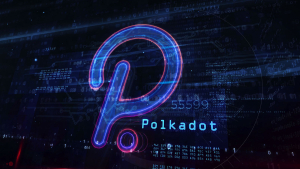
Disclaimer: The opinions expressed by our writers are their own and do not represent the views of U.Today. The financial and market information provided on U.Today is intended for informational purposes only. U.Today is not liable for any financial losses incurred while trading cryptocurrencies. Conduct your own research by contacting financial experts before making any investment decisions. We believe that all content is accurate as of the date of publication, but certain offers mentioned may no longer be available.
The Polkadot (DOT) ecosystem is undergoing a lot of fundamental changes behind the scenes at the moment, and these changes can notably change the outlook of the protocol in the near future. According to the latest updates from Bill Laboon, an acclaimed Web3.0 education, the OpenGov governance system is choosing to replace the Technical Committee and the Council for a more democratic alternative.
OpenGov removes the Council and Technical Committee, and creates an even more democratic and open process to on-chain governance while maintaining security. For details, see https://t.co/QfO6QFw0hU?from=article-links
— Bill Laboon | Web3 Foundation (@BillLaboon) May 19, 2023
OpenGov is described as a governance model that is live on Kusama, the Polkadot protocol's canary network. The goal is to eventually deploy OpenGov on Polkadot after a series of rigorous testing.
Current structure and change implication
The OpenGov model comprises three core components, including the technical committee, the council and the public. While the technical committee consists of a specialized group of experts that manages upgrade timelines, the council is tasked with the management of parameters, admin and spending proposals.
Both bodies are the ultimate powerhouse in the OpenGov system that helps serve the broader public. With OpenGov saying the council is tagged more as a centralized entity, it now wants the responsibilities of the body to be ceded to the public through direct voting.
The technical committee is also on track to be converted to the broader fellowship. In the new iteration of Polkadot's future governance system, the DAO system will consist of just the public and the fellowship, with more decision-making power given to average DOT token holders.
Fitting in the piece
Notably, the push to ensure proper governance will have a major underlying push for the growth of DOT tokens in the long term. With more voting power for DOT holders and an associated reward for participating in the protocol's governance, chances are that there will be more intense accumulation of the digital currency in the mid- to long term.
DOT has promise, and with the changes that can impact its growth in the future, it is looking at building on its current 22.75% year-to-date (YTD) growth.

 Vladislav Sopov
Vladislav Sopov Dan Burgin
Dan Burgin